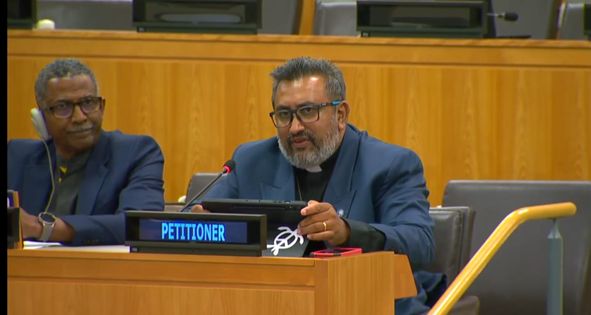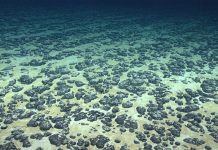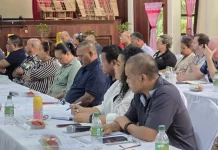In a decisive address to the Special Committee on Decolonisation at the United Nations headquarters, Reverend James Bhagwan, General Secretary of the Pacific Conference of Churches (PCC), voiced serious concerns regarding the ongoing situation in Kanaky New Caledonia.
His statement, representing Pacific faith and civil society, highlighted the deep frustrations felt across the Pacific regarding France’s actions over the last two years.
“In June 2022, I was here as a petitioner to raise our concerns about the failure of the referendum process in Kanaky under the Noumea Accord,” Reverend Bhagwan said.
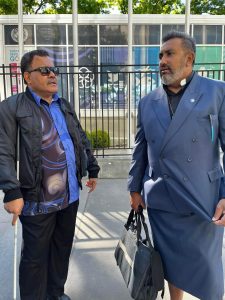
He expressed disappointment in the French Government’s accelerated handling of the third referendum, ignoring calls from local and global communities to ensure a fair and just process.
Since then, Bhagwan noted, France’s actions have further strayed from their responsibilities as an administrating power.
“France has turned a deaf ear to the untiring and peaceful calls of the indigenous people of Kanaky-New Caledonia and other pro-independence supporters for a new political process founded on justice, peaceful dialogue, and consensus,” he said, emphasising France’s perceived failure to act as a neutral party.
Addressing the committee, Bhagwan reiterated the collective concerns of the Pacific region, supported by various civil society groups and churches.
He called for specific actions, starting with the withdrawal of the draft constitutional law aimed at changing the local electorate roll.
“We call for the immediate and unconditional withdrawal of the draft constitutional law seeking to unfreeze the local electorate roll,” he said.
He noted that leaders of other French territories had also condemned the proposed changes.
Bhagwan urged France to reconsider its military presence in Kanaky.
“We call on the French Government to reconsider, as an essential step to de-escalating tensions in the territory, any further deployment of armed forces to Kanaky,” he said. This call reflects a broader desire for peaceful resolution and dialogue rather than military enforcement.
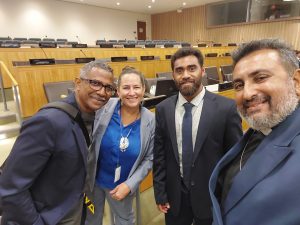
He criticised any external attempts to dictate Kanaky’s political future, including the possibility of a referendum in France to alter the electorate roll.
“We call on the French Presidency to cease any further attempts to enforce externally designed and controlled pathways to determine the political future of Kanaky,” he declared.
He also called on all parties involved in the Noumea Accord to respect the non-violent requests from pro-independence voices and allow more time for dialogue.
“We urge other parties to the Noumea Accord to heed the repeated and non-violent requests of the FLNKS and other pro-independence voices for a better political agreement,” Bhagwan stressed.
To facilitate this, Bhagwan proposed the establishment of an Eminent Persons Group by the Pacific Islands Forum.
“We call for the Pacific Islands Forum to establish an Eminent Persons Group, as a matter of urgency, to mediate between the parties and ensure the best conditions for a just and peaceful dialogue process,” he said.
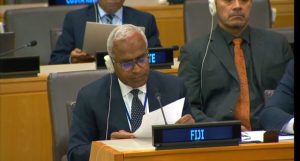
Reverend Bhagwan also emphasised the need for trauma healing and community dialogue in Kanaky.
“We call for commitments to be made and kept for culturally appropriate community trauma healing for all communities in Kanaky,” he urged.
He also highlighted the importance of peacebuilding and nation-building efforts.
Reverend Bhagwan closed his address with a reminder of the inevitability of decolonisation for Kanaky New Caledonia.
“The very fact that Kanaky New Caledonia is an agenda item in this meeting and that of the 4th Committee is a reminder that their decolonisation is a matter of ‘WHEN’, not ‘if’ – and a ‘when’ that needs to be sooner rather than later.
“May God’s blessings of justice, love, and liberation be with all the people of Kanaky as they seek their own equality, liberty, and fraternity,” he said.
Reverend Bhagwan’s statement emphasised the urgency for fair and just treatment of Kanaky New Caledonia, advocating for the region’s right to self-determination and peaceful dialogue.





